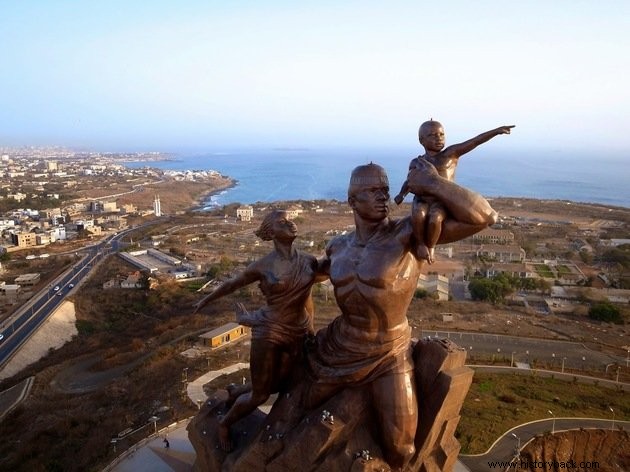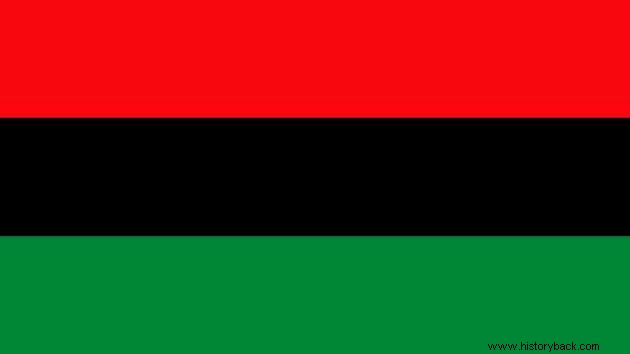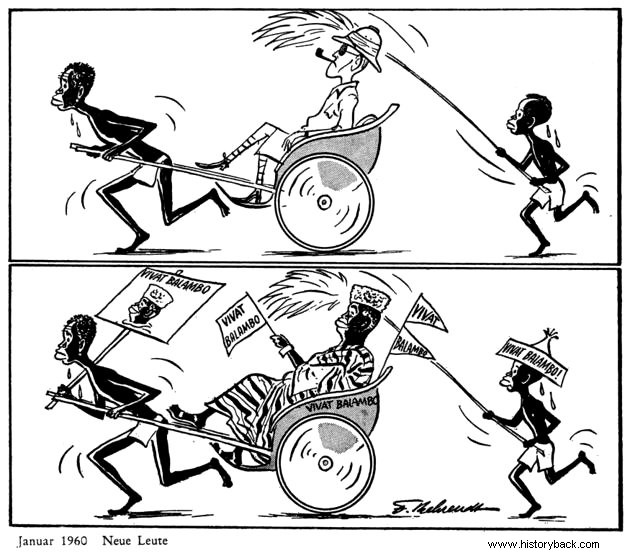The decolonization of Africa occurred during the 20th century when the populations of the occupied African territories managed to expel the European invader and thus gain independence.
The first African country to be independent was Liberia, in 1847; and the last, Eritrea, in 1993.
Historical Context
The independence processes in Africa began at the beginning of the 20th century, with the independence of Egypt. However, it was only after World War II, with the European powers weakened, that African countries achieved independence.
The populations of African countries were called upon to participate in the war effort and many fought in the conflict. When they finished, they imagined that they would have more autonomy, but that was not what happened. Colonialism continued as before the war.
Causes
After the end of the Second World War, the UN began to put pressure on the imperialist powers to put an end to colonization.

Likewise, the world was experiencing the Cold War, the dispute for world hegemony between the United States (capitalism) and the USSR (socialism).
Both countries supported the rebel side closest to their ideas in order to co-opt them into their sphere of influence.
In the same way, Pan-Africanist ideas conquered the African continent with their thinking for African unity.
See also:Imperialism in AfricaPan-Africanism

In the interwar period, the idea that Africans had more similarities among themselves than differences began to emerge.
Virtually the entire continent had suffered from European colonization and the slave trade. In this way, Pan-Africanism was created, which thought of a common identity for Africans in order to unite them against the European invader.
One of the most prominent leaders of Pan-Africanism was the American W.E.B Du Bois (1868-1963), who distinguished himself by writing about the racial issues of his time and supporting the independence movements of the African continent.
Du Bois was an active participant and organizer of the Pan-African Congress that was held periodically to discuss issues relevant to black people.
Abstract
The independence processes on the African continent took place at different times. For example, North West and East African nations were free from the 1950s onwards.
Already those belonging to Sub-Saharan Africa, in 1960, members of Southern Africa and the Indian Ocean region between 1970 and 1980.
Egypt achieved its independence in 1922, but it was in the 1950s that several states achieved their autonomy, such as Libya (1951), Morocco and Tunisia (1956) and Ghana (1957).
Between 1957 and 1962, 29 countries became new independent states and contributed to accelerating the process of African decolonization.
Each imperialist country vacated Africa in a different way. Let's see:
- The United Kingdom agrees to withdraw from certain territories and transfer power to leaders chosen by the mother country. To keep them as allies, the Commonwealth is created. .
- France changes the status of its colonies to Overseas Provinces and later creates the French Community where it will gather its former possessions keeping French as an official language and a common currency. The exception will be the bloody Algerian War.
- Spain transforms Equatorial Guinea into an overseas province in 1960 and Ceuta and Melila into cities. In 1968, Equatorial Guinea is declared independent.
- Belgium will be involved in the Congo War.
- Portugal does not accept getting rid of its colonies and will only change the status of these territories in 1959. Even so, the 60's and 70's are marked by armed conflicts only resolved with the Carnation Revolution in 1974.
After Independence

The cost of the struggle for independence was high, as a result of colonial wars that took the lives of millions of people and undermined the productive capacity of countries.
After the end of decolonization in Africa, most of the new countries enter civil war. That's because there were people who were historically enemies and now lived within the same border.
Also the different ideologies - capitalism and socialism - made them face different groups for power.
In addition, former colonists try to keep the new nations as allies. For this, they become partners and buyers of raw materials from these countries.
Although the continent has shown growth in recent decades, African countries still suffer the consequences of colonization and bad governance.
See also:General aspects of Africa:map, countries and economyRead more:
- Countries of Africa
- Hunger in Africa
- Berlin Conference
- Sharing Africa
- Civil War
- Miscegenation
